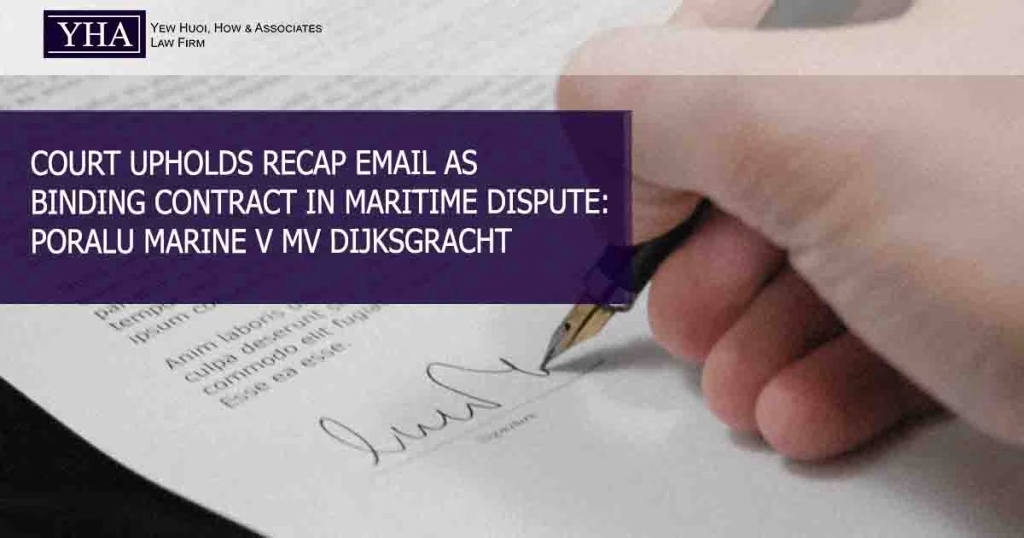Summary and Facts
The case concerns a contract of carriage between Poralu Marine Australia Pty Ltd (the consignee) and Spliethoff Transport BV (the carrier) for transporting 23 pontoons from Cork, Ireland, to Geelong, Australia, aboard the MV Dijksgracht. The cargo was allegedly loaded in sound condition but was damaged upon discharge in Australia. Poralu initiated two actions: an in rem claim against the vessel and an in personam claim against Spliethoff.
The central issue revolves around the terms of the contract of carriage, specifically whether the second recap email (negotiations via email) or the booking note formed the binding contract. This distinction affects which version of the Hague Rules applies and the liability limitations of the carrier.
Legal Issues
- Poralu argued that the contract was formed by the second recap email, while Spliethoff contended it was governed by the terms of the booking note issued later. The booking note was filled out after negotiations and contained terms that favored Spliethoff, including liability limits.
- Another issue was whether the Hague-Visby Rules applied since the shipment originated from Ireland, which has domesticated the Rules but has not ratified them internationally. The rules applied depending on whether the second recap email or the booking note governed the carriage terms.
Court Findings
- The Federal Court of Australia Full Court (FCAFC) held that the second recap email was the contract of carriage, not the booking note. The booking note was merely an attempt to formalize the already-agreed terms but did not supersede the earlier agreement.
- The court determined that the Hague-Visby Rules, as enacted in Ireland, applied to this contract because the recap email stipulated that a bill of lading governed by English law and London arbitration was to be issued.
- The court rejected the booking note’s attempt to impose Dutch law and limit liability to £100 per package, instead applying the Hague-Visby limitation of 666.67 Special Drawing Rights (SDR) per package or unit, or 2 SDR per kilogram of gross weight, whichever is higher.
Why the Second Recap Email was Chosen over the Booking Note
The court found that the second recap email was the binding contract because:
- It reflected the final terms agreed upon after negotiations, including essential details like the governing law and arbitration.
- The booking note attempted to introduce new terms (like liability limits) that were not part of the initial agreement. The booking note was seen as an after-the-fact attempt to modify the agreed terms.
- Recap emails, common in the shipping industry, can constitute binding contracts, especially when they summarize and confirm the final terms reached through negotiations.
- The booking note lacked mutual agreement on the new terms, particularly from Poralu, meaning there was no consensus for it to override the recap email.
Practical Implications
- The ruling highlights the importance of recap emails in shipping contracts. Parties should be cautious about treating recap emails as interim steps, as they may be binding and not easily superseded by later formal documents like booking notes.
- This case reinforces the applicability of the Hague-Visby Rules even where no bill of lading is issued, provided the contract stipulates their application.
- Carriers may face higher liability limits under Hague-Visby Rules, making it crucial to ensure clear contractual terms during negotiations.
Conclusion
The Full Court’s decision emphasizes the significance of email negotiations in determining contract terms and the application of international conventions such as the Hague-Visby Rules. This case serves as a reminder for parties engaged in maritime transport to be meticulous about formalizing contracts and clarifying governing laws to avoid disputes over liability limitations.

